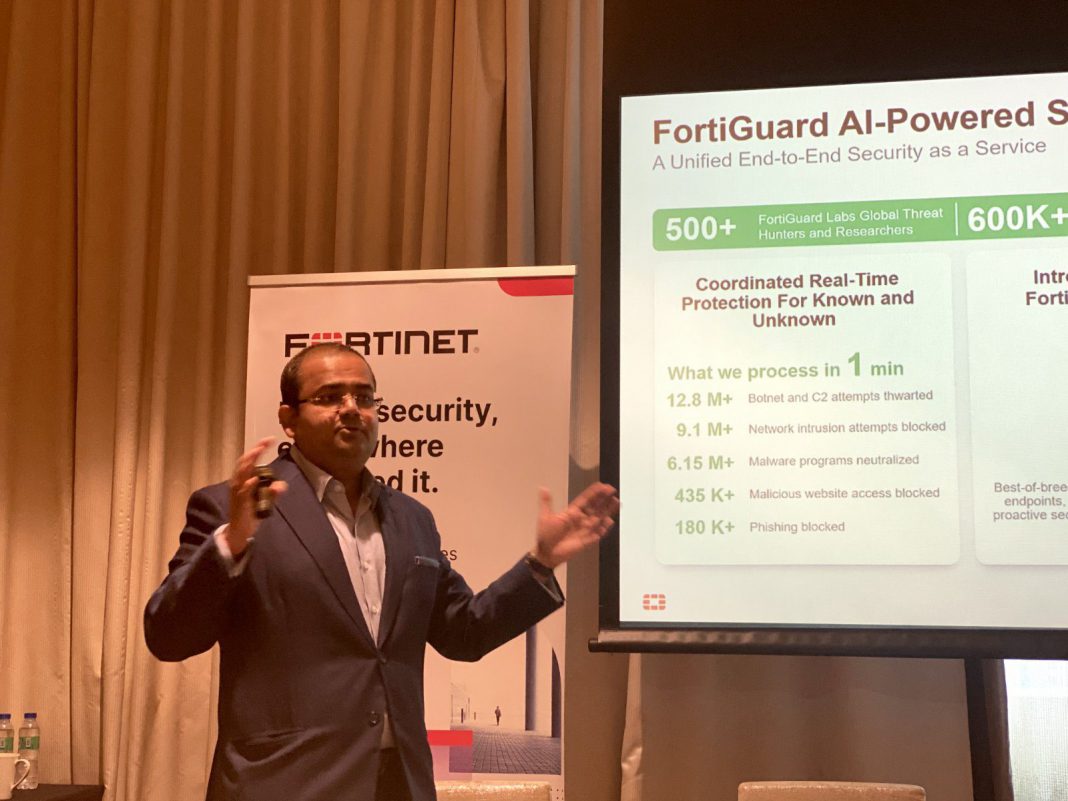Fortinet Releases New Research on Key Concerns around the Cybersecurity Talent Shortage, Recruitment, Diversity, and Security Awareness
In photo: Rashish Pandey, Vice President of Marketing and Communications Asia at Fortinet
Fortinet®, a global leader in broad, integrated, and automated cybersecurity solutions, today released the Asia findings of the global 2022 Cybersecurity Skills Gap Report. The report reveals that the cybersecurity skills shortage continues to have multiple challenges and repercussions for organizations in Asia, including the occurrence of security breaches and subsequently loss of money. As a result, the skills gap remains a top concern for C-level executives and is increasingly becoming a board-level priority. The report which surveyed IT and cybersecurity decision makers across countries such as Singapore, Thailand, Hong Kong, Philippines, Malaysia and Indonesia also suggests ways the skills gap can be addressed, such as through training and certifications to increase employees’ education.
Rashish Pandey, Vice President of Marketing and Communications Asia at Fortinet pointed out the risks that the region faces in the imminent cybersecurity, “Our Southeast Asia and Hong Kong survey as part of a global report shows that 71 percent of participating companies are facing difficulty in hiring technology-qualified talents for cybersecurity, with 63 percent agreeing that this skill shortage results in severe cybersecurity consequences for the business. As more organizations adopt technology such as cloud and automation, the issue of a lack of cybersecurity experts has been exacerbated. Committed to addressing this skill gap, Fortinet’s Training Advancement Agenda (TAA) and Training Institute programs were established to increase access and reach of its cybersecurity certifications and training which are deemed important to hiring organizations, as shown in the survey. Fortinet has pledged to train 1 million professionals by 2026, and through working with local partners, we have succeeded in issuing more than 840,000 certifications since the inception of the program.”
The Widespread Impact of the Cybersecurity Skills Shortage
According to (ISC)2’s 2021 Cyber Workforce Report, the Asia-Pacific has the largest regional workforce gap of 1.42 million. Even though the workforce gap for Asia-Pacific decreased from the previous year, much needs to be done.
Given the increasing costs of breaches on organizations’ profits and reputation, cybersecurity is becoming more of a board level priority. Across Asia, 89 percent of organizations that have a board of directors reported that their board asks questions specifically about cybersecurity. And 79 percent of organizations have a board of directors who has recommended increases in IT and cybersecurity headcount.
[In the photo from left] Rashish Pandey Vice President of Marketing and Communications, Fortinet Asia, Louie Castaneda Country Manager – Fortinet Philippines, Peerapong Jongvibool Vice President- Fortinet South East Asia & Hong Kong and Nap Castillo Fortinet Manager, Systems Engineering during the Fortinet Accelerate Asia 2022 Philippines Edition press briefing
Advancing Cybersecurity Skills Through Training and Certifications
Fortinet’s skills gap report demonstrated that training and certifications are critical ways organizations seek to further tackle the skills gap. The regional report revealed that 97 percent of leaders believe technology-focused certifications positively impact their role and their team, while 86 percent of leaders prefer to hire people with certifications. Additionally, 89 percent of respondents shared they are willing to pay for an employee to achieve cyber certifications. One major reason for certifications being highly regarded is due to their validation of increased cybersecurity knowledge and awareness.
What impacts have certifications made?
Besides valuing certifications, 93 percent of organizations have implemented a training program to increase cyber awareness. However, 51 percent of leaders believe their employees still lack necessary knowledge, which raises questions about how effective their current security awareness programs are.
For organizations looking for security awareness training, Fortinet offers a Security Awareness and Training service through the award-winning Fortinet Training Institute. The service further protects organizations’ critical digital assets from cyber threats by building employee cybersecurity awareness. This service receives updates from Fortinet’s FortiGuard Labs threat intelligence so that employees are learning and keeping up with the latest evolving cyberattack methods to prevent company breaches and risks from being introduced.
Addressing Recruitment and Retention Challenges with Diversity Commitments
A significant challenge for organizations has been finding and retaining the right people to fill critical security roles ranging from cloud security specialists to SOC analysts. The report found that 60 percent of leaders in Asia admit their organization struggles with recruitment and 57 percent struggle to retain talent.
Among hiring challenges is the recruitment of women, new college graduates and minorities. Regionally, 76 percent of organisations see the recruitment of new graduates as the top hiring hurdle, followed by 75 percent of leaders for the recruitment of women. 62 percent said hiring minorities has been challenging. As organizations look to build more capable and more diverse teams, 90 percent of Asian companies have explicit diversity goals as part of their hiring strategy, according to the report. The report also demonstrated 75 percent of organizations have formal structures to specifically recruit more women and 59 percent have strategies in place to hire minorities. Additionally, 65 percent of organizations have efforts in place to hire more veterans.
About the Fortinet Skills Gap Survey:
- The regional survey as part of the global report was conducted among more than 110 IT and cybersecurity decision-makers from Singapore, Thailand, Hong Kong, Philippines, Malaysia and Indonesia.
- Survey respondents came from a range of industries, including technology (36%), manufacturing (17%), and professional services (11%).














